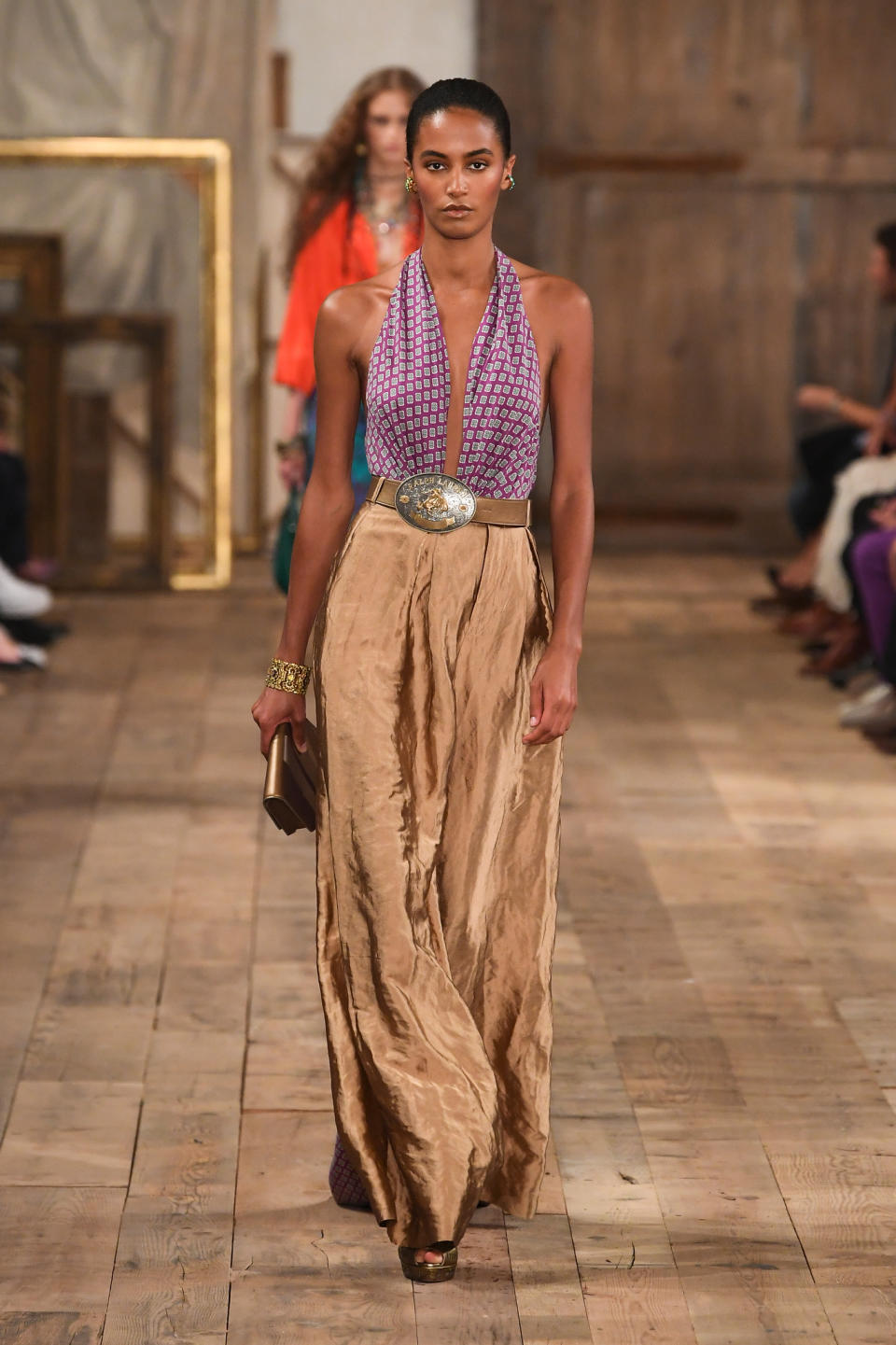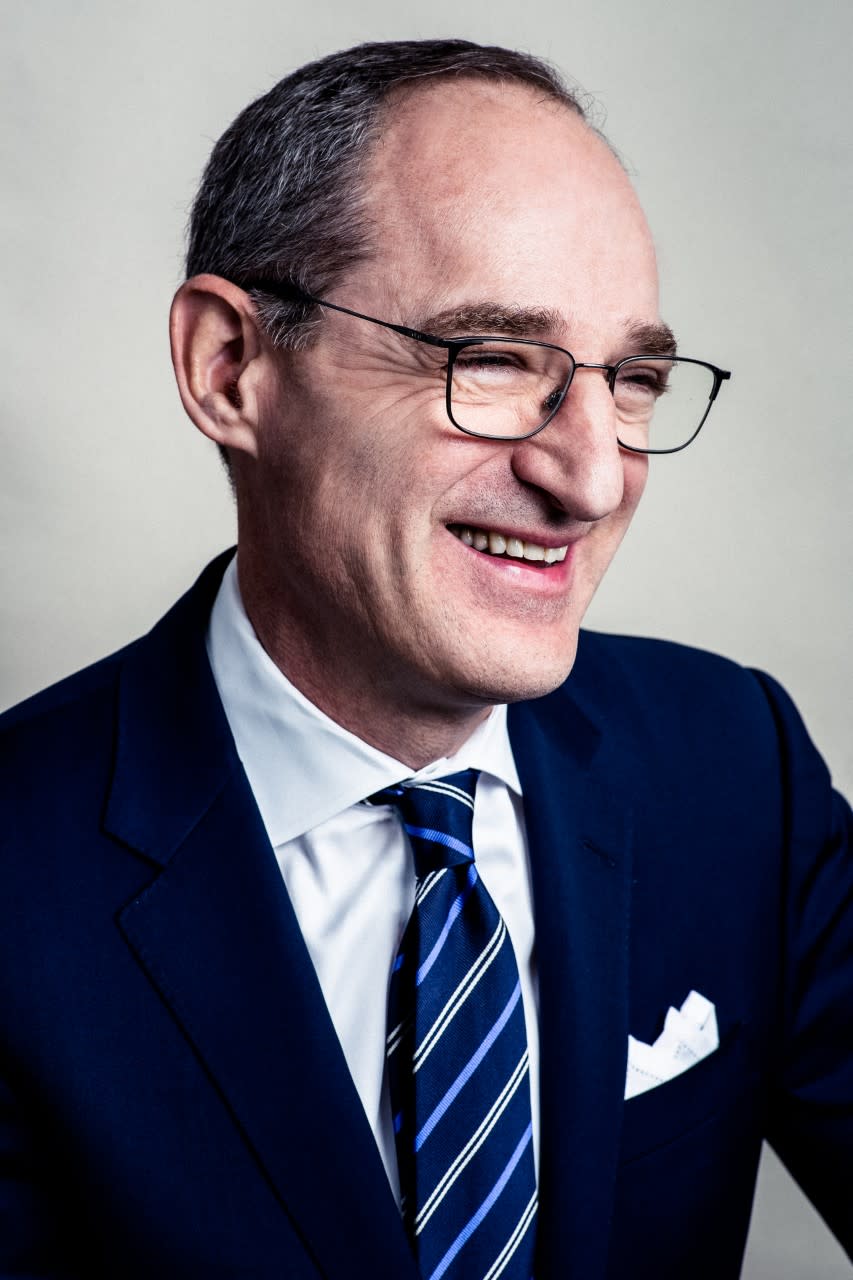Ralph Lauren Beats Sales and Profit Estimates in Q2
- Oops!Something went wrong.Please try again later.

Updated Nov. 8 3:45 p.m.
Ralph Lauren Corp. continued to play its game well in the fiscal second quarter — despite weakness in the North American wholesale business and a tougher economy.
More from WWD
The company has been on a campaign to elevate its brand and kept at it this quarter, boosting average unit retail prices at its own stores and on its website by 10 percent, on top of an 18 percent increase a year earlier.
Overall, the brand has pushed its prices up a total of more than 70 percent over the last six years.
That march higher has been driven by a number of components — from the kind of products sold to the prices charged to where they’re sold.
Along the way, Ralph Lauren has become, well, more Ralph Lauren, by being much less reliant on the outlet business and even more focused on brand.
“Our brand is our most powerful asset,” said Patrice Louvet, president and chief executive officer, in an interview with WWD. “We’re driving momentum and desirability.”
It’s an effort that Louvet said cuts across generations of customers as the brand shows up across various platforms — from its runway show in New York Fashion Week to sponsorships with the U.S. Open, Wimbledon and Ryder Cup to a partnership with Fortnite.
That consumer reach and brand resonance has helped fuel the business through a tricky consumer landscape.
Net income slipped modestly to $146.9 million from $150.5 million the prior year, although diluted earnings per share ticked up 1 cent to $2.19 given a change in the number of shares outstanding. (Altogether the company gave about $275 million back to shareholders through its dividend and share repurchases.)
Adjusted EPS came in at $2.10 — well ahead of the $1.93 analysts projected, according to FactSet.
Revenues for the three months ended Sept. 30 increased 3.4 percent year-over-year to $1.63 billion from $1.58 billion, with gains in Europe and Asia offsetting wholesale weakness in North America. The company’s revenues came in $24 million over analysts’ best guess.
Louvet pointed specifically to the strength of the direct-to-consumer channel, which now makes up about two-thirds of the business and is doing well from the remaining outlet presence through its full-price stores and the website.
“All signs are pointing in the right direction when it comes to our DTC business,” the CEO said.
Wholesale — which has been a tough spot for brands across the spectrum this year — remains a work in progress.
Ralph Lauren’s North American sales slipped 1 percent from the prior year, to $718 million for the quarter, which included a 4 percent increase in the direct-to-consumer business and a 7 percent decline at wholesale.
Picking up the slack were revenues in Europe, which increased 7 percent to $527 million, and the business in Asia, which rose 10 percent to $348 million.
Louvet said there’s a “real bifurcation” in wholesale.
The upper tier — think Saks, Bloomingdale’s and Neiman Marcus — is doing well and the top 50 or 100 stores in the next tier down are also seeing a “solid performance” with low-single-digit gains.
“Where the pressure is is in the balance of the fleet,” Louvet said. “Those stores are in smaller cities around the country, where consumers are feeling more pressure and the brands and our partners are putting more emphasis on the top stores.”
To better present the brand he said more stores are going to pull together Ralph Lauren’s various classifications — which are now separate — to make a stronger statement with full looks available in one place.
Some of the wholesale difficulties speak to the climate in general, with inflation, high interest rates and other marcoeconomic and geopolitical concerns mixing up consumers.
“We’re operating in a very unstable world,” Louvet said. “That’s become the norm, unfortunately, but we know how to navigate this.”

Even so, he said the core Ralph Lauren consumer has been “quite resilient,” even as the more value-oriented consumer has been feeling the strain.
The brand continues to be anchored by its core product, including cashmere sweaters, tweet blazers and Oxford shirts.
“What we’re seeing is, when things get more challenging, the consumers will tend to gravitate to a brand they know, toward a product they trust,” the CEO said. “The core business is about 70 percent of our overall business and has done particularly well.”
The focus on brand and on core product come naturally to Louvet, a veteran of Procter & Gamble, which has become the launch pad for an increasing number of CEOs in fashion, including Chip Bergh at Levi Strauss & Co., his soon to be successor Michelle Gass and Bracken Darell, the new chief at VF Corp.

Louvet also noted that Pietro Beccari, chairman and CEO of Louis Vuitton, hails from Henkel, another consumer product goods company.
“A lot of the fundamentals you learn in CPG, on brand building, on consumer understanding, on operational discipline are incredibly relevant in this space,” Louvet said.
While it became commonplace to see CPG executives make the jump into beauty, they are now coming into fashion, he noted.
“The fundamentals are still about a brand, it’s still about the consumer and it’s still about the go-to market,” he said.
Fashion has traditionally drawn its CEOs out of its own merchandising ranks. And while Louvet said that brings in executives with “incredible product understanding and operational experience,” he added that the CPG ex-pats bring in more branding experience.
Of course Ralph Lauren, who serves as executive chairman and chief creative officer at the company he founded, has all the branding expertise he ever needed.
“We inspire people to embrace their sense of individual style through a timeless, elegant way of living. From our recent fashion show in Brooklyn to championing the resilience of sport at the U.S. Open, Wimbledon and Ryder Cup, there is a spirit of authenticity to everything we do and it endures beyond any economic or fashion cycle,” Lauren said.
Launch Gallery: Ralph Lauren RTW Spring 2024
Best of WWD

